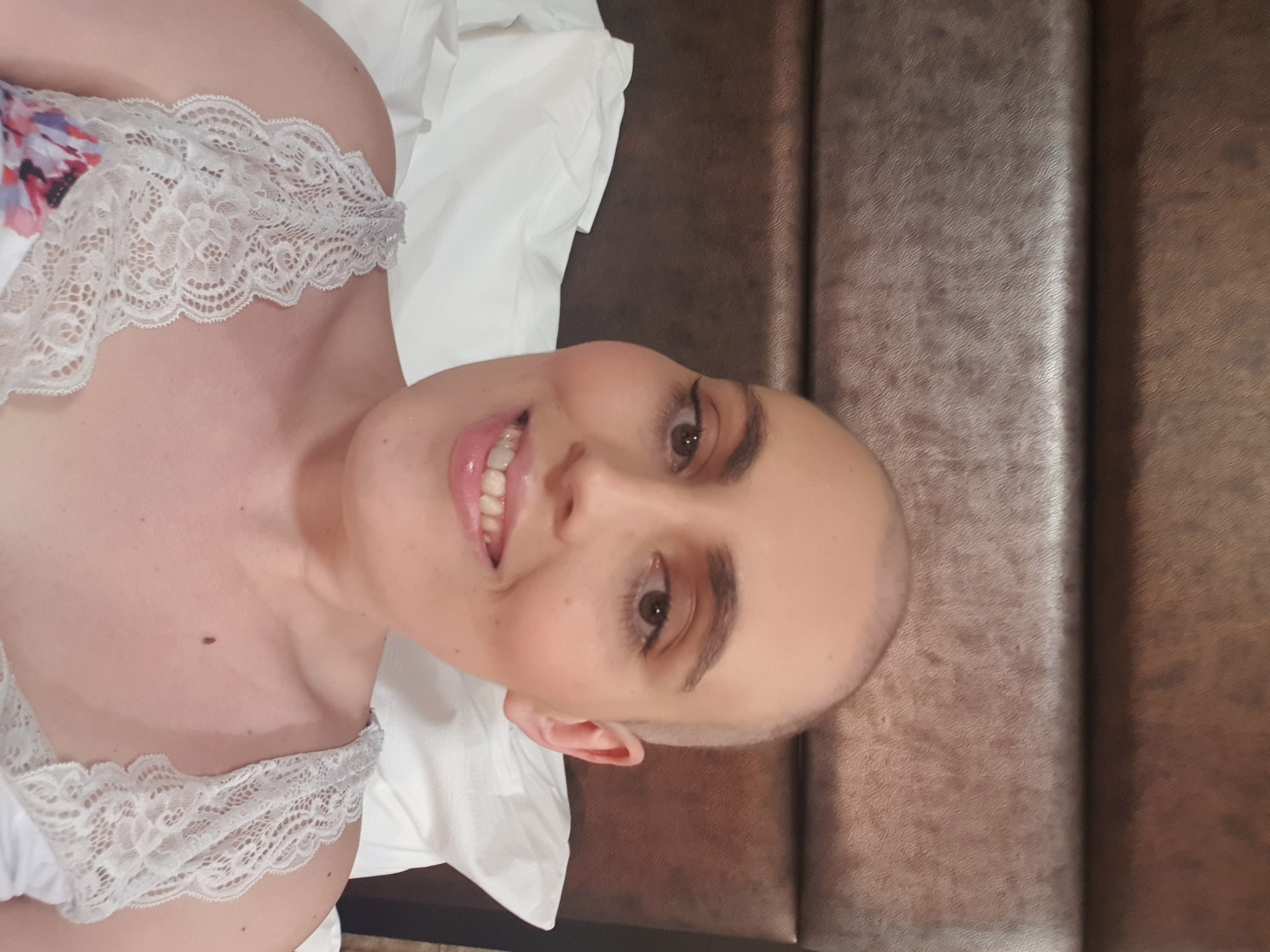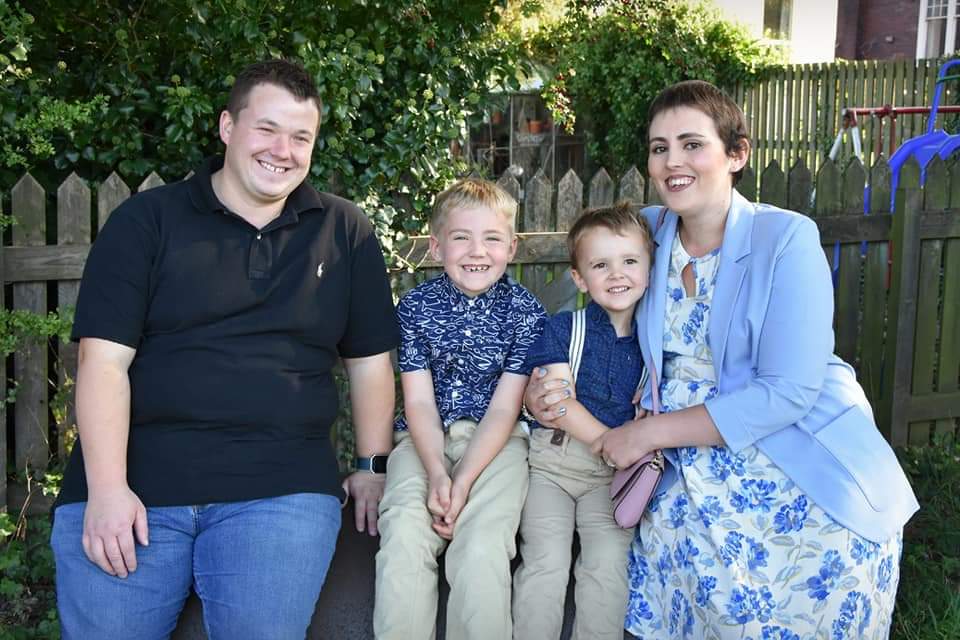“Good blood from kind people”
Before she received her first transfusion, Jasmine Barnett’s platelet count was one sixtieth what it should have been.
Jasmine had been training for the 2019 London Marathon and constantly feeling tired without seeing her times improve. After battling with ankle pains and an unshakeable bout of flu, things took a turn for the worse.
 “I started to wake up most mornings drenched from night sweats and with a nosebleed. My gums were bleeding too,” says Jasmine, a mum of two. “I went to my GP and at 11am I had blood taken for testing. At 6pm, I got a call telling me I needed to get to hospital urgently.
“I started to wake up most mornings drenched from night sweats and with a nosebleed. My gums were bleeding too,” says Jasmine, a mum of two. “I went to my GP and at 11am I had blood taken for testing. At 6pm, I got a call telling me I needed to get to hospital urgently.
“They told me a bed was waiting for me there. It was suspected leukaemia.”
Jasmine was given a platelet transfusion that same night. She was diagnosed with acute promyelocytic leukaemia, a very rare and extremely aggressive blood cancer.
(Picture: Jasmine during treatment for acute promyelotic leukaemia)
With only around 200 cases diagnosed a year, acute promyelocytic leukaemia causes a surplus of immature white blood cells to grow. These cells get stuck in the bone marrow, stopping it from producing cells naturally. Until relatively recently, it was considered fatal.
People with acute promyelocytic leukaemia are at serious risk of brain haemorrhages. Platelet transfusions help to reduce that risk.
“It was awful, just so scary” says Jasmine, “I was an incredibly lucky 26-year-old with no family history of the disease apart from a grandparent who had a skin cancer.”
Jasmine went on to have four rounds of chemotherapy, during which she had 35 platelet transfusions, as well as 8 transfusions of red blood cells and 6 transfusions of plasma and cryoprecipitate.
“We tried to stay away from words like ‘blood cancer’ or ‘cancer’ with the children. We used to tell them I had poorly blood and when I was getting the transfusions, that it was good blood from kind people, replacing my rubbish blood.
“I did used to look at the bags and wonder where the blood had come from and who the donor was. I donated myself once, about a year before I was ill, and I loved the text saying where my blood had gone.
“I wouldn’t have survived without the transfusions, but in March 2024, I was able to say I was 5 years in remission.
I will be able to see my two babies grow up, and that’s thanks to the generosity of blood and platelet donors
“My last bone marrow biopsy was in January 2022 – I had 14 in total – and I only have blood tests every six months now. It’s a big difference from the several a day I had when I was first diagnosed.”
As well as sharing her story online, something she hopes will be a comfort to other people with acute promyelocytic leukaemia, Jasmine has been once again pounding the pavement and raising funds for cancer charities.
“I’m trying to do as much fundraising and awareness work as possible,” she says. “I’ve held several fundraisers so far. Then, last year, Blood Cancer UK created a Walk of Light, which is a walk for those affected by blood cancer.

More donors with A negative, AB negative and A positive blood types are needed to join the small community of just 10,000 donors regularly giving platelets across England.
Platelets from donors with these blood types are safe to give to almost everyone and are constantly needed by hospitals.
Platelets are tiny gold-coloured cells in your blood which help it to clot and stop bleeding. Platelet transfusions can help people with cancer and people who've lost a lot of blood after an accident, organ transplant and other surgery.
Nearly 70 per cent of platelet donations are used to help people with cancer. One donation can help up to three adults or 12 children.
Giving platelets can take up to two hours. Currently you can donate platelets at 25 donor centres across the country.
If you are interested in donating platelets a simple assessment will be carried out when you next donate blood to check your suitability. Find out more about platelet donation.
